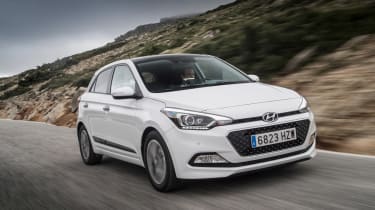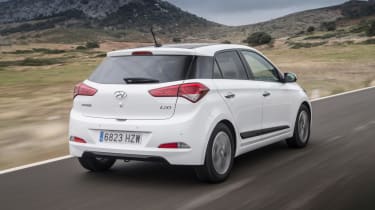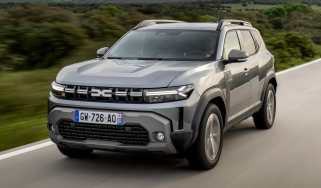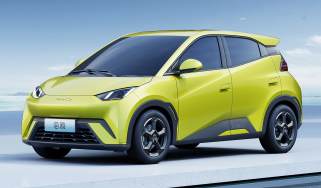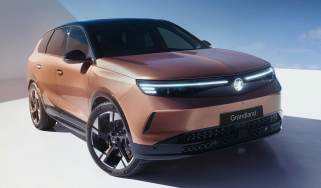Hyundai i20 diesel review
Diesel power makes Hyundai i20 supermini far more appealing

Until the new turbocharged three-cylinder petrol arrives next year, the 1.1-litre Hyundai i20 diesel is the one to go for – if your budget permits. Don’t let the performance figures put you off, as in the real world, it feels noticeably quicker than the petrols, plus your economy will be much improved. Add in the masses of space inside and generous kit, and it’s an appealing proposition.
Diesel-powered superminis account for roughly 15 per cent of total market sales, and the all-new Hyundai i20 is among the most efficient of the lot. So, is it worth considering over the more refined petrol models?
The i20, fitted with a 74bhp 1.1-litre three-cylinder diesel, immediately overcomes the main issue which plagues the 1.2-litre petrol version: performance. Although the diesel is slower on paper – taking a lethargic 16 seconds to get from 0-62mph – it feels punchier and more alert due to its low-down torque.
As power is far more accessible in the diesel i20, you also have a better chance of achieving the official economy figures – Hyundai claims 70.6mpg for the 1.1-litre model, as well as 103g/km CO2 emissions. If efficiency is the priority, the Blue Drive version is capable of 88.3mpg and tax-free emissions of 84g/km, making it one of the most frugal superminis around.
At idle, the three-cylinder diesel really makes its presence known, as it clatters and sends vibrations through the cabin, but when you pull away, it immediately settles. And thanks to the extra grunt, you don’t have to rifle through the gears in order to make decent progress.
The little diesel is far more refined at higher speeds, too. The car still suffers from the same fidgety ride as the petrol version, though, so it scuttles and squirms over rougher ground or when it’s loaded up with passengers.
Regardless of engine choice, every i20 remains extremely practical. A 326-litre boot is very generous, while there’s more rear passenger space than you’ll find in any other supermini.
Mid-spec SE models – like our test car – are expected to make up the bulk of orders, with standard kit such as 16-inch alloys, cruise control, air-con and reversing sensors. Yet, whatever the spec, if you want a touchscreen sat-nav, you have to opt for the dealer-fit extra.

